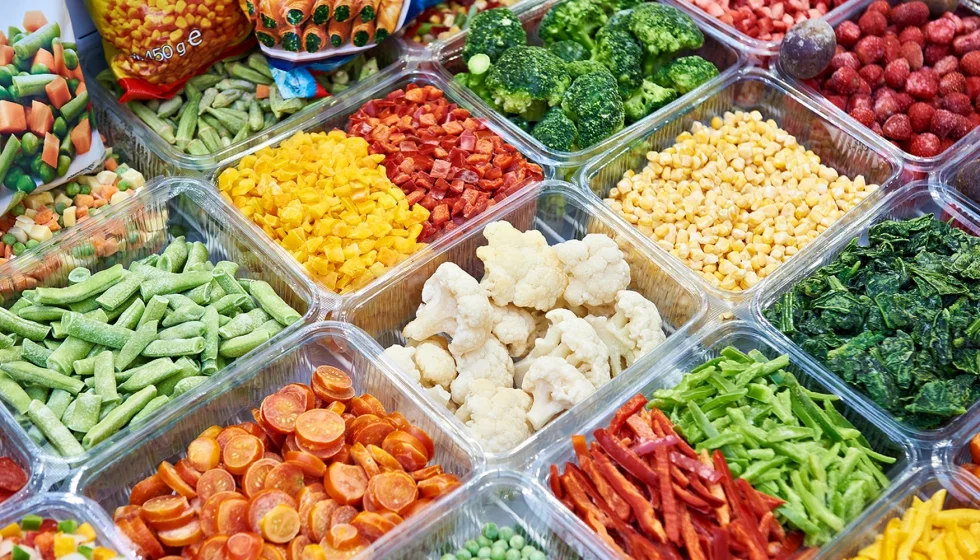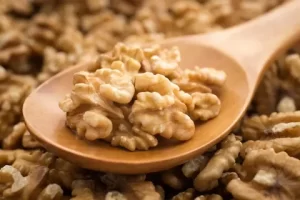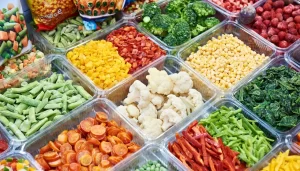Frozen vegetables have become one of the essentials that allow people to get quick, easy, and often successful meals on the table. However, more myth-busting is seen regarding the health value of frozen vegetables versus fresh produce.
Here is a breakdown of the nutritional benefits of frozen vegetables, common misconceptions, and a little insight into how freezing impacts the quality of our food.
Let’s get a closer look at why frozen vegetables really are healthy and how they really compare to fresh produce.
How Freezing Works?
Frozen vegetables are brought in at the ripest available for a nutritional profile. Once picked, frozen vegetables are blanched, equivalent to being quickly boiled, killing bacteria and inactivating enzymes that will quickly make the vegetables spoiled.
Then, they flash-freeze at extremely low temperatures to lock in their freshness and nutrient value. It is fast, efficient, and where the integrity of vegetables is retained, thus safe for consumption and most nutrients retained.
Frozen Vegetables vs. Fresh Vegetables: What’s the Difference?
Here’s how some factors that impact the nutritional integrity and safety of fresh and frozen vegetables compare:
1. Storage Time
Fresh vegetables may spend as long as a week traveling in delivery trucks before they are bought in the supermarkets and can spend another week there. The amounts of nutrients present at the time of delivery may have fallen due to light, air exposure, and temperature changes.
Frozen vegetables are preserved shortly after they are harvested and retain nutrients for much longer. Therefore, frozen vegetables will be pretty handy if fresh vegetables cannot be secured. Hence, they are out of season or too old in storage.
2. Seasonality and Availability
Frozen fruits and veggies make it possible to enjoy different produce throughout the year. The convenience of frozen alternatives helps you introduce more varieties to your diet, although eating seasonally is pretty great for freshness.
3. Convenience and Food Waste
Fresh fruits and vegetables are highly perishable; therefore, they become waste and add costs. Frozen vegetables are chopped, sliced, and washed and will be fine for several months; thus, you can prepare them without wasting food.
4. Nutrient Loss During Cooking
Some of the preparation methods ensure that nutrient loss occurs both in fresh and frozen vegetables. Among them is blanching before freezing, which removes water-soluble vitamins.
However, this can be avoided by processing them in other ways, like steaming, roasting, and microwaving, which retain more nutrients. Frozen vegetables already have been blanched, so quick cooking methods such as stir-frying or steaming would help retain their nutritional value.
Misconceptions surrounding Frozen Vegetables
However, while frozen veggies are indeed a nutritional powerhouse, a few myths have drenched their perceived benefits. Here is the truth on some of these most common misconceptions.
Myth 1: Frozen vegetables are less nutritious
The freezing process actually does a better job preserving nutrients than fresh preparation, which may be picked before it’s even fully ripe to allow it to survive transportation and storage. Frozen vegetable suppliers are a great way to get bulk frozen vegetables.
Myth 2: Freezing Destroys Texture and Flavor
Freezing damages, the texture of certain vegetables, which is an enormous customer turn-off, more so when it comes to spinach or broccoli. However, proper procedures do not damage the texture or flavor. Frozen vegetables can be roasted, stir-fried, or steamed easily.
Myth 3: Added Preservatives are included with Frozen Vegetables
Frozen vegetables will rarely have any type of preservatives added since freezing naturally preserves the food item being concerned. If you want to be absolutely sure, though, then check the ingredient list, but you’re going to most often just find the vegetable alone in frozen vegetables.
Health Benefits of Frozen Vegetables
Frozen vegetables can represent an enormous reservoir of many nutrients that can promote healthy diets. Let’s look at some of the health benefits listed below:
1. Teeming with Important Vitamins and Minerals
Frozen vegetables, like any other type of vegetables, contain many essential vitamins and minerals like vitamin C, potassium, and folate for an effective immune response, proper muscle functioning, and good health in general.
For example, frozen spinach is rich in iron and vitamin K, while frozen peas are high in protein and fiber.
They contain antioxidants that protect the body against cell devastation and inflammation even when they are stored frozen. These free radicals support immunity protection, combat oxidative stress radicals, and, therefore, assist in protecting the skin. Colored, leafy, and not-so-starchy vegetables are rich in carrots, broccoli, and bell peppers.
2. Weight Management
Generally, the calorie level in frozen vegetables is quite low and rich in nutrients. That way, they make a good product for losing weight as one feels full up, loses their high blood sugar levels, and just happen to be a great product that helps in staying healthy and well in terms of digestion. Therefore, frozen vegetables are excellent additions to any diet.
3. Cheap and Available
Frozen fruits are cheaper and last longer as compared to fresh fruits, hence becoming more accessible to the majority without shelling out the money on costly vegetables.
Especially when it is helpful for those people who come from such locations where very little availability of fresh fruits or vegetables at a reasonable price takes place.
4. Reduced Food Waste
Frozen vegetables save you on food waste since they can be stored for a longer time without turning bad. Besides, they are already pre-washed and cut, minimizing waste due to overcooking of what is needed.
Cooking Frozen Vegetables
Less Water Required: To boil or steam, just a minute amount of water is required to limit the loss of water-soluble vitamins.
No Thawing: First, thawing would break down the vegetable structure. The vegetables retain their texture by being cooked directly from frozen.
Heavy Seasoning: Frozen vegetables accept seasoning because they taste best when added. Add some freshly chopped herbs and spices, or add some olive oil.
Quick Cooking Methods: Steam, stir fry and microwave methods protect nutrients and retain the texture of food much better than boiling.
Conclusion
In a nutshell, frozen vegetables are a healthy foodstuff rich in nutrients. Freezing saves most of their nutritional value, so they can be much like, sometimes even better than, fresh ones that will lose their nutrients over time. In every respect, frozen vegetables are an excellent choice for a healthier diet while saving time or reducing waste.
So, the next time you swing by those frozen foods section, gather a few of the bags of your favorite veggies with your confidence- they’re a fantastic way to enjoy year-round nutrition at reasonable and accessible prices.







